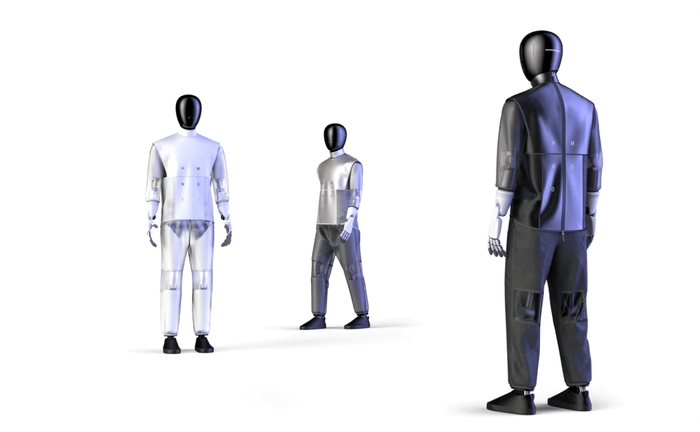Digital Twins Enhance US Swim Team Training for 2024 Paris OlympicsDigital Twins Enhance US Swim Team Training for 2024 Paris Olympics
Digital twins of U.S. swim team members August Lamb and Kate Douglass were tested ahead of the Paris Games

The U.S. swim team will use digital twins at the 2024 Paris Olympic Games to evaluate and improve race performance.
Ken Ono, a mathematics professor from the University of Virginia (UVA) and his team of students created the digital twins of swimmers and have worked with U.S. swim team members August Lamb and Kate Douglass to test them ahead of the Paris Games.
The digital versions accurately replicate a swimmer’s movements and offer valuable insights to coaches.
These digital twins provide detailed information on drag force, a critical factor affecting a swimmer's performance. The technology allows athletes to make adjustments to their technique based on the data provided.
To create these digital twins, the scientists used a suite of sensors called inertial measurement units fitted to the athletes. These sensors capture 512 frames of information a second, compared to traditional video which records at just 24 frames per second. This high-resolution data allows for precise mapping of a swimmer's movements.
The sensors let the scientists capture 512 frames of information a second, compared to traditional video which records at just 24 frames per second.
Results of their study, published in Scientific American, suggest digital twins would enable swim coaches to “precision train” Olympic athletes.
“By virtually experimenting with an athlete’s digital doppelgänger, we can easily run different race scenarios to determine that swimmer’s optimal race plan, their ‘formula’ for success,” the research states. “A coach might be able to help an athlete increase their aerobic capacity by transforming that unrealistic simulation into a genuine race strategy at the highest stage of competition.”
The technology has already demonstrated promising outcomes.
Douglass' digital twin revealed issues with her head position in the 200 meter breaststroke. The insights helped her coaching staff replan and rework her performance, helping her improve and ultimately break the American record in 2023.
Ono and the team have been working with competitive swimmers since 2015 alongside colleagues from Emory University. Their work with Todd DeSorbo, UVA's swim team coach, contributed to the women's team winning four consecutive national championships in 2020.
“Being able to have this resource where you can test at one month and then spend a month or two making that adjustment and then test again and see what the difference is — it’s an incredibly valuable resource,” Lamb said.
Read more about:
2024 Paris OlympicsAbout the Author
You May Also Like
.jpg?width=100&auto=webp&quality=80&disable=upscale)
.jpg?width=400&auto=webp&quality=80&disable=upscale)





